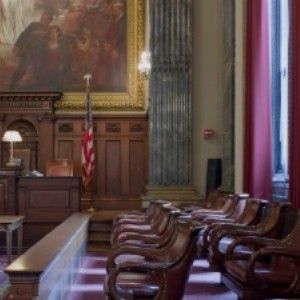Are judges who say jury nullification is invalid telling the truth?

No, this is simply not true.
To understand why a judge might wrongly state or imply this in instructions to the jury, let us look back in history. This type of statement traces back at least to 1988 to the case of U.S. vs. Krzyske (6th Circuit, 1988). In his trial by jury over tax-related criminal charges, Kevin Krzyske mentioned jury nullification in his closing argument. During deliberations, jurors asked the judge about the doctrine of jury nullification. In response, the judge falsely told them:
"There is no such thing as valid jury nullification. Your obligation is to follow the instructions of the Court as to the law given to you. You would violate your oath and the law if you willfully brought in a verdict contrary to the law given you in this case."
Jurors ultimately convicted Krzyske, and he appealed based on three grounds. One of those grounds for appeal was that he argued he was entitled to a jury instruction regarding jury nullification. The United States Court of Appeals, Sixth Circuit ruled against Krzyske on the jury nullification instruction issue in a split decision with two judges concurring and one judge dissenting.
Notably, both the opinion affirming the conviction and the dissenting opinion recognize that it is, indeed, jurors' right to refuse to enforce the law. Despite the judge's statement being untrue, therefore, the majority stated that:
"The right of a jury, as a buffer between the accused and the state, to reach a verdict despite what may seem clear law must be kept distinct from the court's duty to uphold the law and to apply it impartially. This has been recognized by the Supreme Court in Horning v. District of Columbia, 254 U.S. 135, 138, 41 S. Ct. 53, 54, 65 L. Ed. 185 (1920), where Justice Holmes stated, " [T]he jury has the power to bring in a verdict in the teeth of both law and facts. But the judge always has the right and duty to tell them what the law is upon this or that state of facts...." This directive has been recognized by this court in United States v. Burkhart, 501 F.2d 993, 996-97 (6th Cir. 1974), where we approved a district court's instruction that the jury consider only the facts and law before them. In light of Horning, Avery, and Burkhart, we are compelled to approve the district court's refusal to discuss jury nullification with the jury."
In his two dissents (one on the matter of rehearing), Circuit Judge Merritt pointed out the inappropriateness of the Court allowing a judge to willfully misinform jurors when they explicitly ask about jury nullification. Judge Merritt stated, in part:
"The jury returned to the courtroom concerned about the issue of "jury nullification." The jury wanted to know to what extent it had the right to acquit the defendant because it disagreed with the government's prosecution. It wanted to know what was meant by the idea of "jury nullification." The Court responded by telling the jury that it had no power to engage in jury nullification and that was the end of the matter. It told the jury in effect that it had no general authority to veto the prosecution. This is simply error. The Court should have explained the jury's function in our system. Our Court has made it clear in the past that the jury does have veto power and the jury should have been so instructed."
and
"The law is settled that the jury has the power to decide against the law and the facts. The jury specifically asked about its power to do so, and was told by the District Court that it had no such power. The least that the jury should have been told was "the jury has the power to bring in a verdict in the teeth of both law and facts . . . the technical right, if it can be called so, to decide against the law and the facts . . . ." Horning v. District of Columbia, 254 U.S. 135, 138-39 41 S. Ct. 53, 54, 65 L. Ed. 185 (1920). These were the words of Justice Holmes speaking for the Court. The Supreme Court has never taken these words back or indicated that they do not properly state the law. The District Court and our Court are simply refusing to apply these words because they do not agree with them."
This unfortunate ruling has given judges apparent legal carte blanche to use this false jury instruction. It is not surprising, then, that this language has crept into other trials with strong potential for jurors to conscientiously acquit or at least hang the jury by exercising their right of jury nullification.
-
Estimated Convictions Obtained by Plea Bargain
97%
-
Extra Punishment for Refusing a Plea Deal
64%
-
Rank of U.S. in Incarceration
1
-
Years FIJA Has Fought for Jury Rights
36


